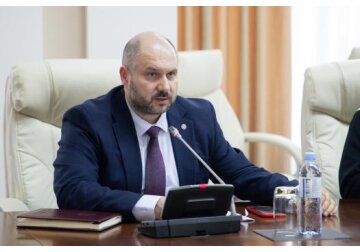
Moldova hopes for Canada's assistance in the electrification of transport in our country and the promotion of Vehicle-to-grid (V2Grid) technologies.
This was announced by Energy Minister Victor Parlicov during a meeting with Canadian Ambassador for Climate Change Catherine Stewart as part of participation in the annual UN climate change conference COP28 in Dubai (UAE). As noted in the department’s statement, the minister discussed with her, among other things, the possibilities of supporting the electrification of transport in Moldova, in particular the promotion of Vehicle-to-grid technologies (“vehicle-to-network”) - V2Grid and Canada’s support for innovation and decarbonization of countries in development process. Victor Parlicov took part in a round table at the ministerial level of the Energy Community, organized as part of the annual UN climate change conference COP28, which takes place in the UAE. The roundtable assessed progress in building climate and energy governance within the Energy Community contracting parties in line with the EU's 2030 energy and climate goals. Among the goals discussed was a reduction of EU greenhouse gas emissions by 55% by 2030 compared to 1990 levels, a reduction in final energy consumption by at least 11.7%, compared with projected energy consumption in 2030, and the share of renewable energy sources in final consumption by 45%. The event was also attended by European Commissioner for Energy Kadri Simson, Director of the Energy Community Secretariat Artur Lorkowski and other officials. Victor Parlicov discussed Moldova’s ambitious goals for decarbonizing the energy sector by 2050 during a meeting with the Executive Director of the International Energy Agency, Fatih Birol. Keeping global warming to 1.5°C will require a global agreement and action to triple global renewable energy capacity, double the pace of energy efficiency improvements, and reduce greenhouse gas (GHG) emissions, according to the IEA's recently published World Energy Outlook 2023 report by 75% from oil and gas companies and much more. Moldova is one of the most vulnerable countries to climate change, despite its negligible contribution to global greenhouse gas emissions. Annual losses caused by climate change amount to 2.13% of gross domestic product. Over the past 130 years, the average annual temperature in Moldova has increased by more than 1.2°C. As a result, droughts, major floods, heat waves, heavy rainfall and other extreme weather events are becoming more common. To keep the planet livable, countries around the world have committed to keeping global warming below 2°C by 2050, but aiming for 1.5°C.// 05.12.2023 — InfoMarket







